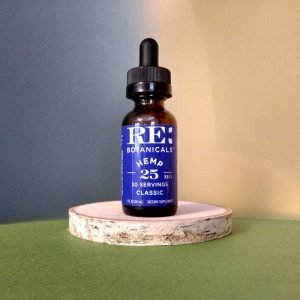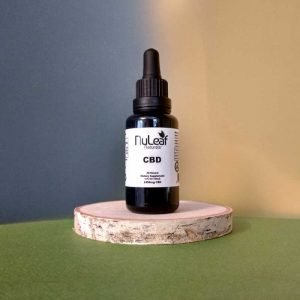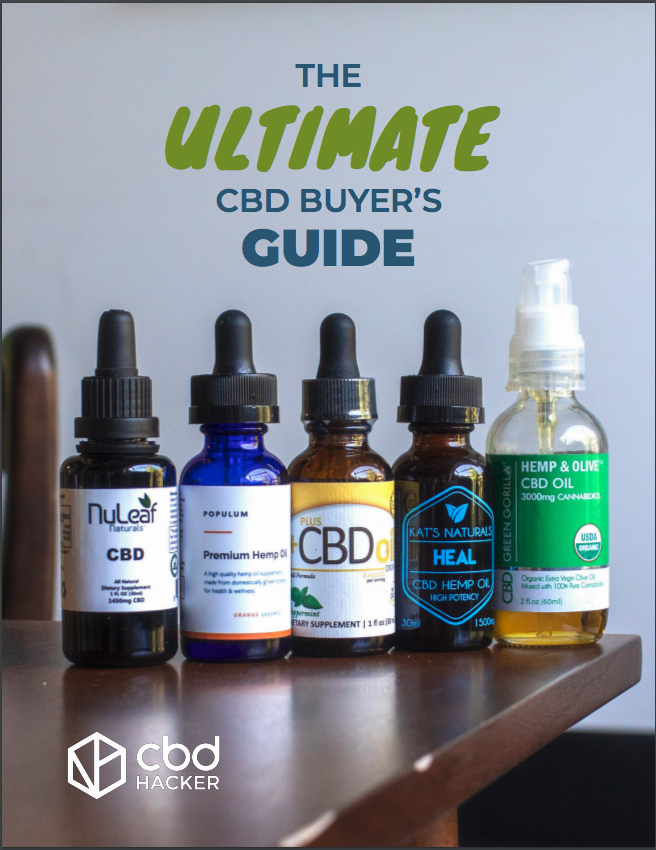We have the cardiovascular system to thank for our beating heart and the blood vessels and blood that transport oxygen, nutrients and hormones throughout our body.
On top of that, our cardiovascular system helps regulate our body temperature and the fluids in our body and also protects our body with white blood cells, antibodies and other complement proteins.
As you can imagine, keeping our cardiovascular system running smoothly and in tip-top shape is vital to living a healthy life. We can do that by being active and eating right, but how about by incorporating CBD into our routine?
CBD, or cannabidiol, is touted for its therapeutic health benefits for many neurological and psychological disorders (think schizophrenia and epilepsy), but how about those pertaining to the heart? In other words, is the non-intoxicating CBD heart-healthy?
How does CBD affect the heart?
The evidence that CBD directly affects the heart is lacking.
Unlike with THC, aka tetrahydrocannabinol, CBD has almost no direct effect on the cardiovascular function in healthy individuals.
This includes both heart rate and blood pressure, according to Brook Henry, PhD. Henry is an assistant research scientist at the University of California, San Diego’s Center for Medical Cannabis Research and department of psychiatry.
Such a difference is most likely due to THC activating more endocannabinoid receptors in our cardiovascular system than CBD, Henry continues. CBD, on the other hand, has more of a neurological effect.
Best CBD Oils
Looking for the best full-spectrum CBD oils out there? These are just a few examples of trusted brands that we’ve fully vetted for quality:
Or, you can check out our full ranking of the 20 Best CBD Oils for 2019.
However, that doesn’t mean that CBD isn’t useful for treating cardiovascular issues. Current medical research suggests potential benefits for those with certain cardiovascular and autoimmune conditions.
CBD’s Effects on Blood Pressure
About one in three US adults have high blood pressure, or hypertension, according to the Centers for Disease Control and Prevention.
High blood pressure can increase one’s risk for having a heart attack, stroke, and kidney disease.
Knowing how to combat and reduce high blood pressure can help people live a longer, fuller life. Such changes include eating a healthier diet, not smoking, being more active, and lowering your stress levels.
That’s where CBD might come in. A 2017 study examining the link between CBD and blood pressure found that doses of CBD helped lower the systolic and diastolic blood pressure of 10 male subjects when compared to a placebo.
When it came to taking a mental stress test on a computer after the CBD dosage, the subjects’ blood pressure actually lowered in both the pre- and post-stress test periods. Although more studies are required, this evidence is the burgeoning beginning of discovering CBD’s potential on treating stress-related cardiovascular disorders.
CBD’s well-known effects for combating anxiety could also be helpful in reducing high blood pressure, according to New Jersey-based physician Dr. Rachna Patel.
In a 2017 comprehensive review of CBD studies regarding psychiatric orders, CBD was found to have positive results for those with anxiety disorders.
According to several studies involving mice, CBD does this through a number of ways, such as increasing our body’s’ serotonin, the so-called “happy chemical.” It may also help the area of our brain that handles emotional responses, the hippocampus, to regenerate neurons, which can be destroyed by stress and anxiety.
This could be major, considering that 40 million adults in the United States are affected by an anxiety disorder, according to the National Institute of Mental Health.
In fact, a small double-blind study involving 24 patients with social anxiety disorder found that being treated with CBD helped their anxiety, including lowered heart rates and blood pressure, when preparing for a public speaking test.
CBD’s Anti-inflammatory Effects
One way that CBD might directly benefit the heart is through its anti-inflammatory properties.
Myocarditis is when the myocardium, or the heart muscle responsible for contracting and relaxing to pump blood throughout the body, becomes inflamed and causes the body to pump blood less effectively.
This type of inflammation causes a slew of health problems, ranging from having trouble breathing all the way to death if left untreated.
Myocarditis has several possible causes, such as an infection that has made its way to the heart—in which case our immune system tries fighting back—to an autoimmune disease that turns the immune system against the heart.
According to a 2016 study, CBD may have the ability to reduce autoimmune myocarditis by decreasing the inflammatory cell invasion and necrosis. It may also inhibit certain immune responses in the body.
CBD was also found to reduce oxidative stress, which is often associated with inflammation.
CBD for Strokes and Recovery
In the United States, someone has a stroke every 40 seconds, according to the CDC. Furthermore, someone dies of a stroke every four minutes.
CBD may be useful in indirectly helping people recover from strokes, although there needs to be more supporting evidence. According to Henry, CBD is reported to reduce tissue damage in animals that suffer a heart attack or stroke.
Studies with rats have shown that CBD decreases the amount of heart or brain cells that are killed when blood flow is reduced to the heart or brain, which is exactly what happens during these two medical conditions.
A 2007 study with rats that were treated with CBD for an entire week found that their infarct size, or amount of dead tissue, lowered by 66 percent.
A 2017 study on rats agreed, finding that CBD could help protect those who suffer a stroke against brain damage. The researchers concluded that CBD helped lead to long-term functional recovery after a middle cerebral artery occlusion, which is a lacunar stroke. With strokes being the leading cause of serious, long-term disability in the United States, these findings are significant.
Although there’s a glimmer of hope, more studies need to be conducted in order to narrow down CBD’s use in the goal of strengthening our cardiovascular system and making sure our heart is pumping as efficiently as possible.
Editor's Choice: CBD Oil Drops
Looking for a good CBD oil? Allow us to introduce you to a few of our team’s favorites.
Or head on over to this year’s ranking of the Best CBD Oil Drops to see reviews of the top 20 products, along with lab results and tasting notes.
RE Botanicals, Hemp 25 Classic Tincture
Founded by a veteran of the hemp industry and an advocate for regenerative agricultural practices, RE Botanicals is one of the first CBD brands to qualify for organic certification from the USDA — and they beat many of their competitors on pricing!
Save 10% with code: cbdhacker.
4 Corners Cannabis, Oral Tincture
If you want to take advantage of the hemp plant’s complete spectrum of natural compounds, 4 Corners Cannabis is a solid choice. Of all of the CBD oils that we’ve tested, their cannabinoid profile was one of the broadest and most potent. Save 15% with code: Hacker15.
NuLeaf Naturals, Full Spectrum CBD Oil
NuLeaf Naturals offers Colorado-grown, full spectrum CBD oil that offer among the most trace cannabinoids per drop of any product we’ve tested.
Save 20% with code: cbdhacker.










